AP Seminar Script
1/21
There's no tags or description
Looks like no tags are added yet.
Name | Mastery | Learn | Test | Matching | Spaced |
|---|
No study sessions yet.
22 Terms
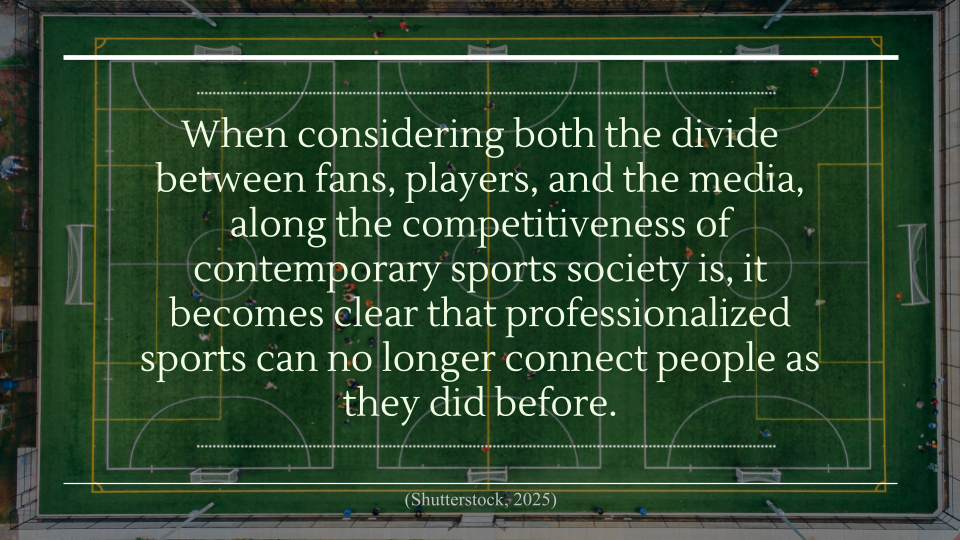
Sports used to be very simple. In the past, people didn’t worry about the final score. All they were focused on was having fun. However, why is it that when we look to today’s professionalized sports, we no longer see this spirit brought out? This takes me to my argument. (yap)
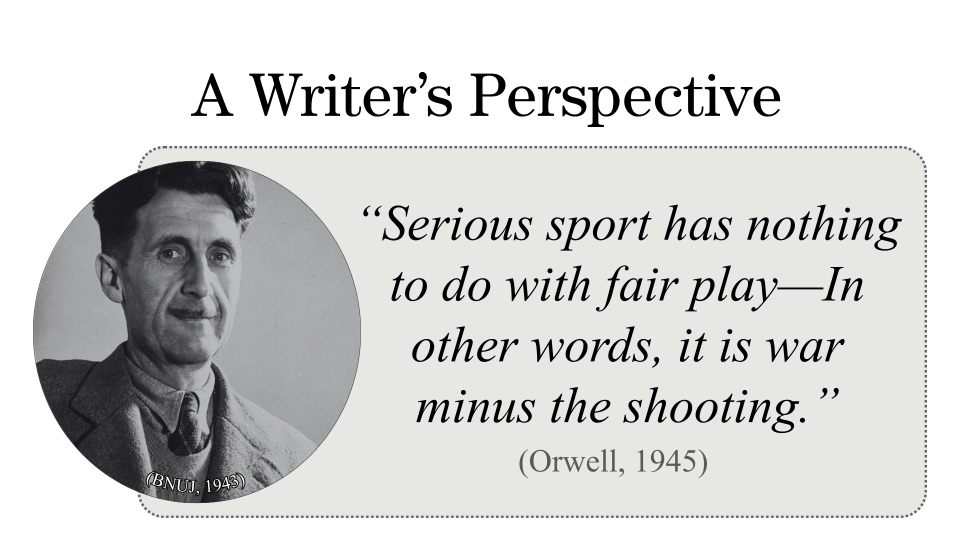
George Orwell: describes sports as “war minus the shooting.”
Goes on to mention rough-housing between athletes, and how fans reciprocate this violent behavior
Demonstrates how brutal sports have become .
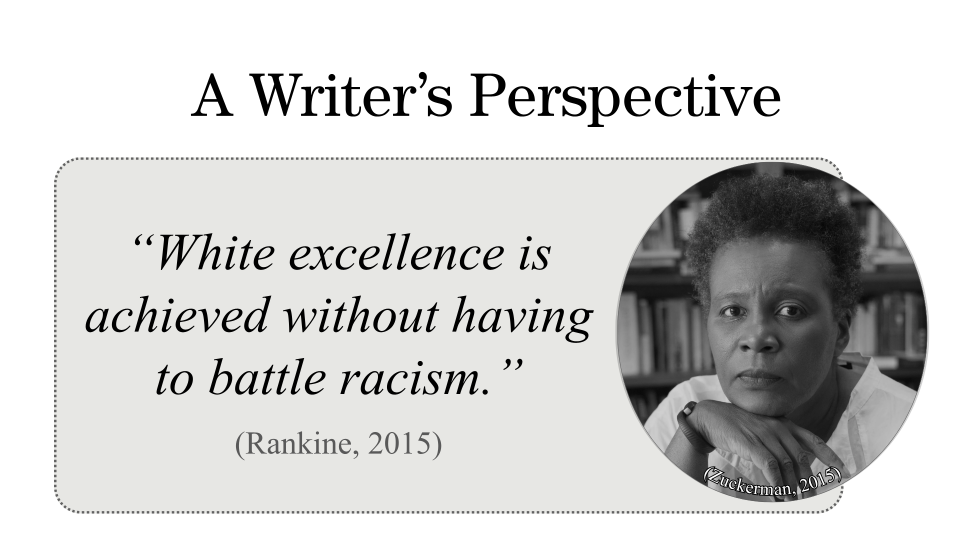
To piggyback off this:
Claudia Rankine states colored athletes have to work harder than white ones.
This frustrating, racist narrative is released by the media to put players down for the sake of “fan engagement.”
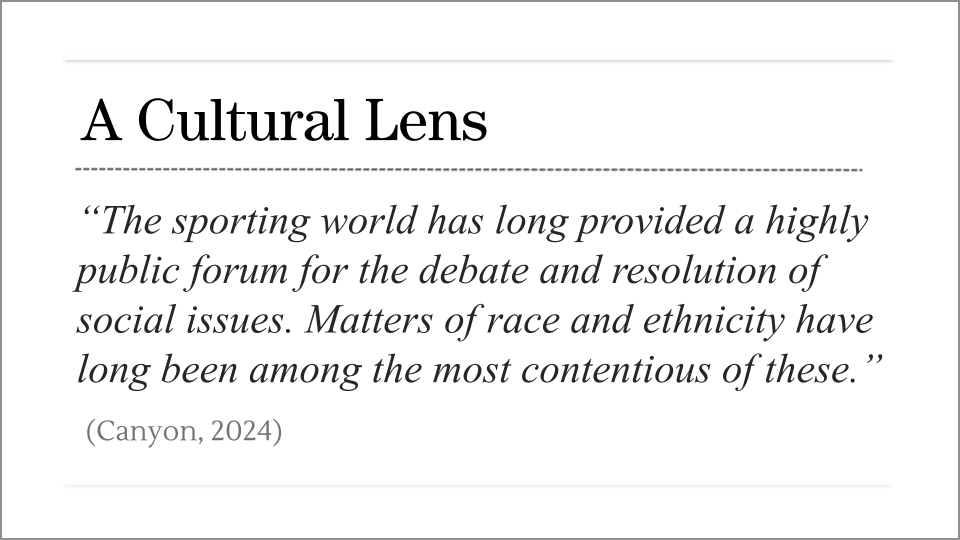
Racial debates in the sports community encourage fans to “pick a side” > “come to a common ground.”
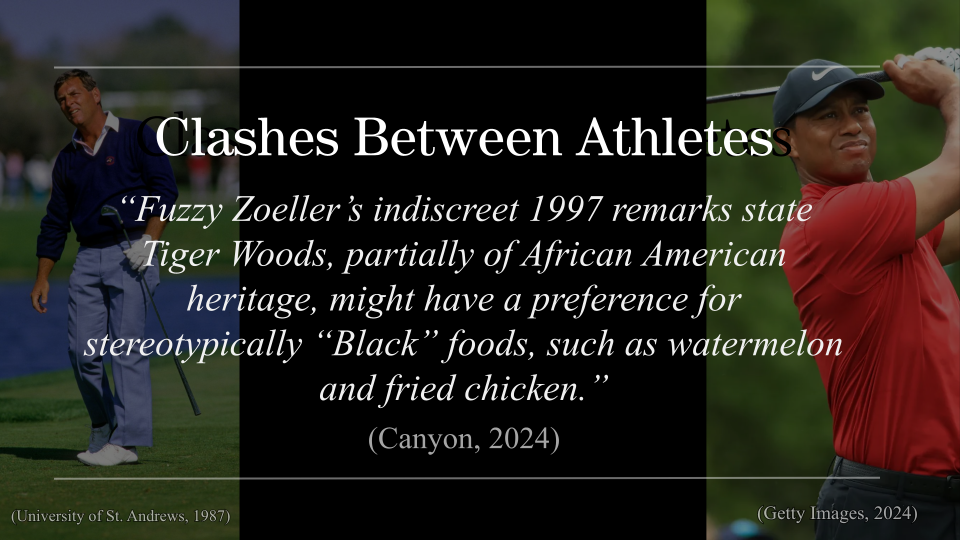
Racist comment to Tiger after he’d won a championship
Not only polarized players, but their fanbases.
Scrambled to defend fave
Also highlights a cultural struggle of colored athlete. They’re often recognized for their race > their achievements.
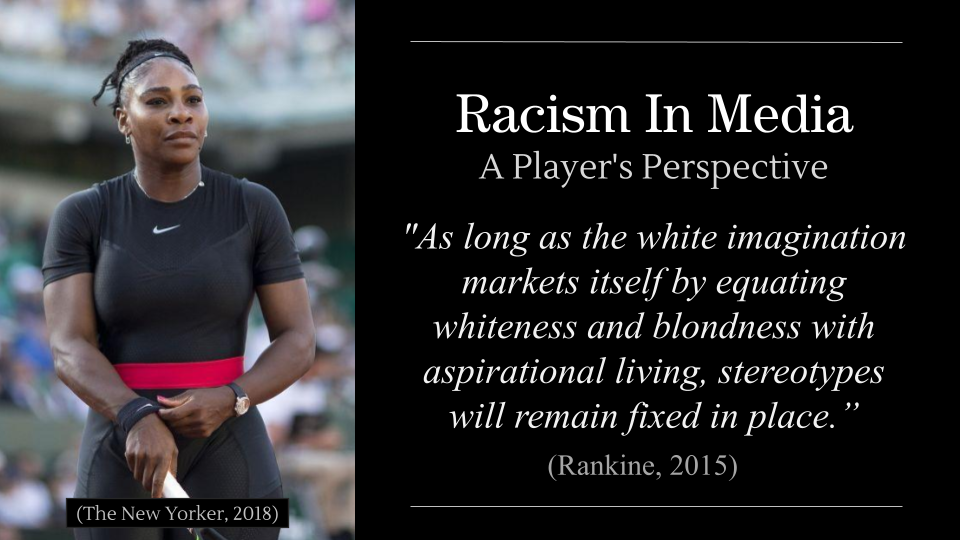
Has been the case for even the most empowering of athletes, such as tennis star Serena Williams.
Cultural perspective reveals: she’d receive less praise + brand deals, more bad calls than her white competitors
Alienates colored fans and athletes
Pushes extremely toxic beauty standards.
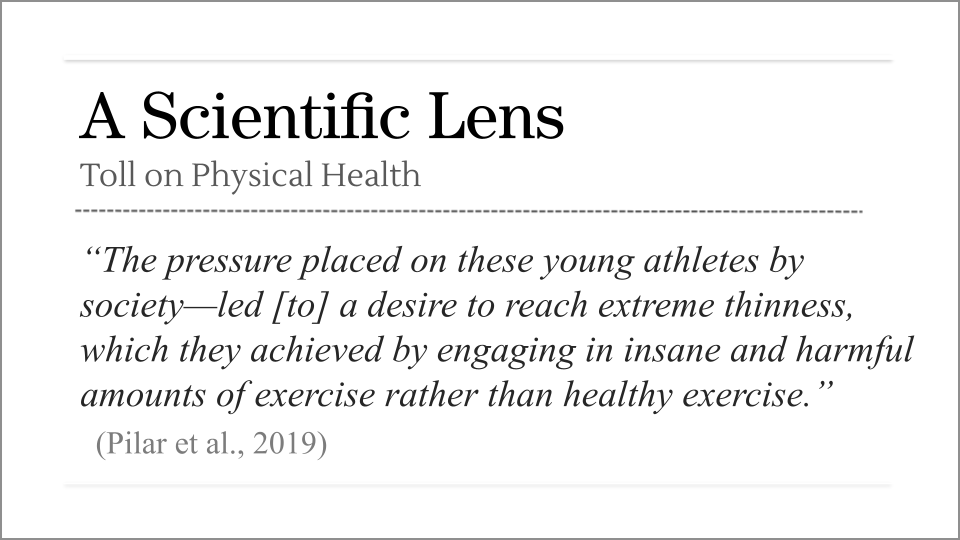
Media focus on athlete bodies makes fans feel insecure
Hurts both physical and emotional health
Affects fans, young athletes, and pros alike
Shifts value to looks over skill
Leads to quitting sports
Sports media has not only taken immense emotional damage on individuals, but has caused communities to physically drift apart from each other. This is a result of the rise of streaming services in sports.
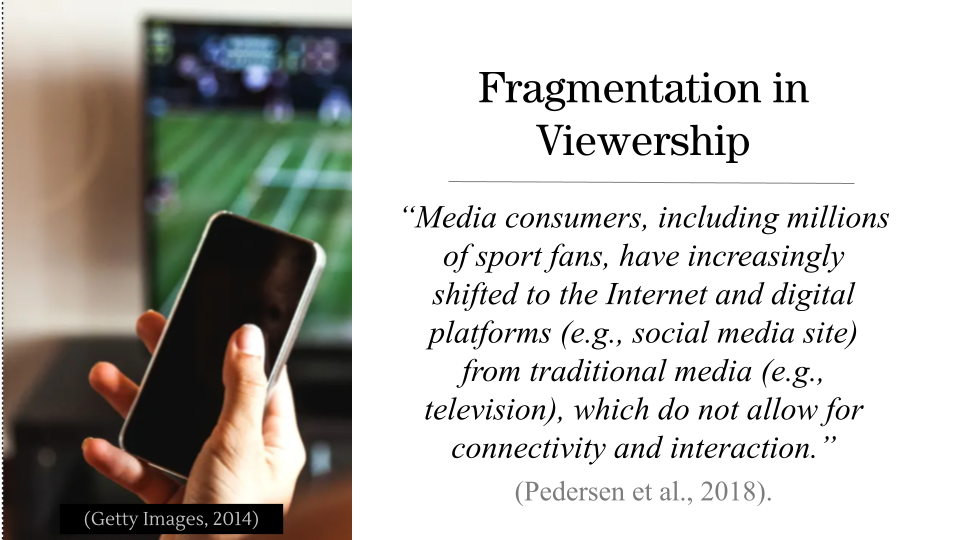
Instead of being gathered around a TV with loved ones, people now watch sports to their own devices.
Less moments where sports actively brings people together.
Independent viewer-culture → loneliness.
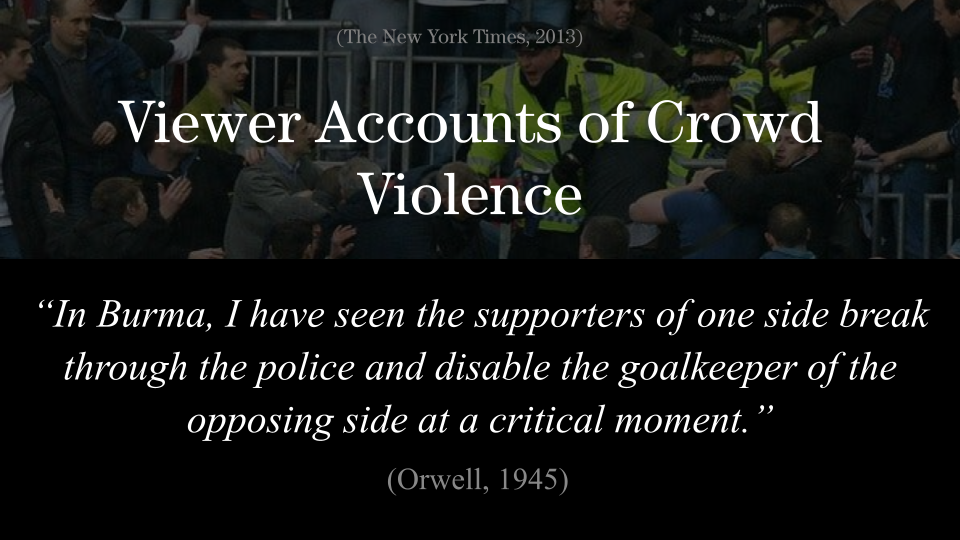
Union over love for the game ❌ Dividing “every man for himself” culture ✅
Connects to the previous idea of independence.
People are willing to harm others to see a favored team on top.
Rather than binding fans with patriotism, only thing connecting them now = hatred.
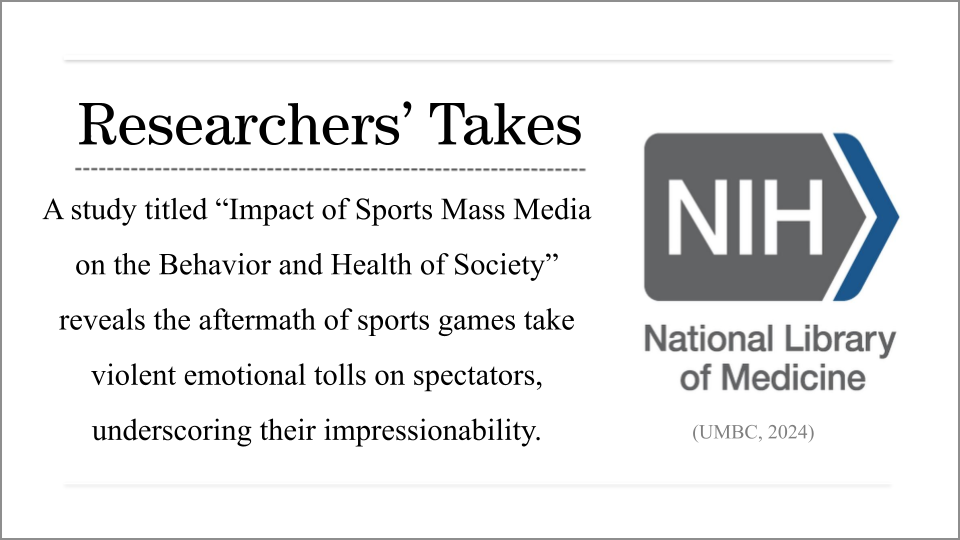
Parasocial fan-to-athlete relationships
Dedicated fans = heightened emotional response.
Increases the chances of them acting out + injuring those around them.
Sports experience is harmful > unifying.
Adaption of harmful habits outside of sports
Takes me to my counterargument
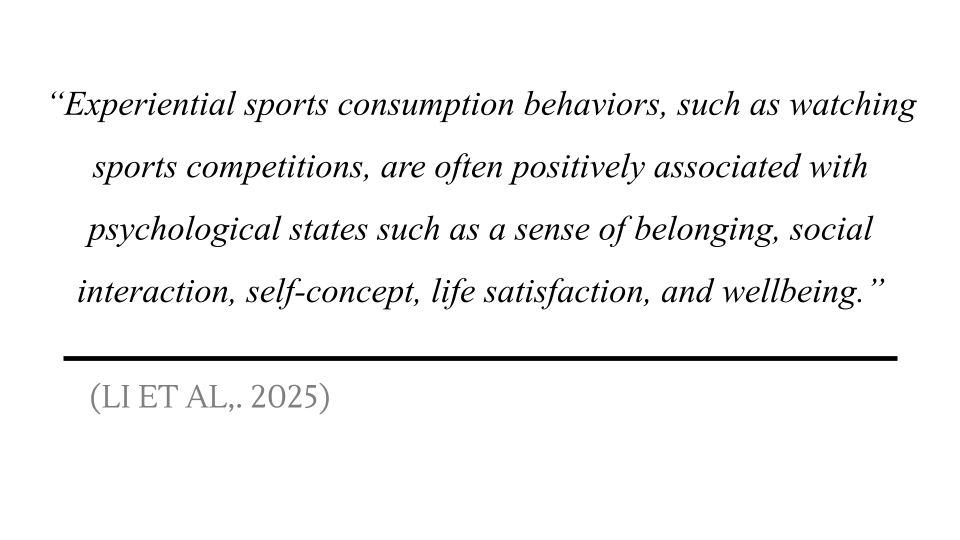
Playing sports: Encourages ppl to cooperate with their teammates
Watching sports: The communal atmosphere around a TV is shown to remedy loneliness
BUT: Observing outrageous fan behavior can do more damage > good on mental health.
Streaming services replacing unifying, connective experience of watching TV
Fans may even feel unsafe cuz casual racism and toxic beauty standards in sports media.
With athletic society only growing more toxic, action must be taken. This leads me to my solutions.

Commissioners, or sports executives, would get more authority when athletes act out.
Cracking down harder on conduct policies.
Fines, suspensions, even lifetime bans for harmful fan and athlete behavior.
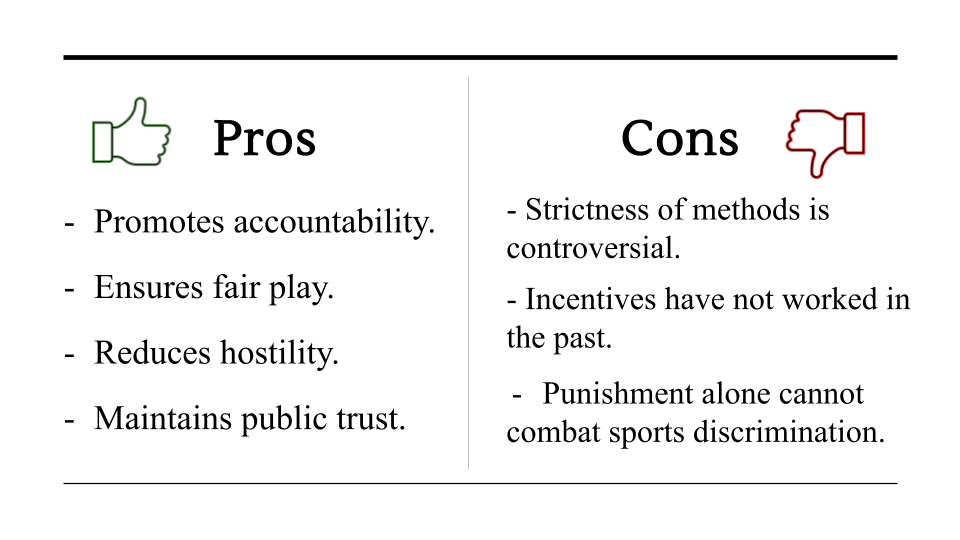
Pros: Addresses the competitiveness of fans and athletes.
Stricter discipline = less fans trying to cause + reduced the amount of sports-based injuries
In return, this.. restate other pros
Cons: Doesn’t address the bigger picture. Enforcing stronger policies only prevents physical outbreaks. but doesn’t protect individuals from emotional harm.
Restate other cons
Because of this, we’re going to need a Plan B.
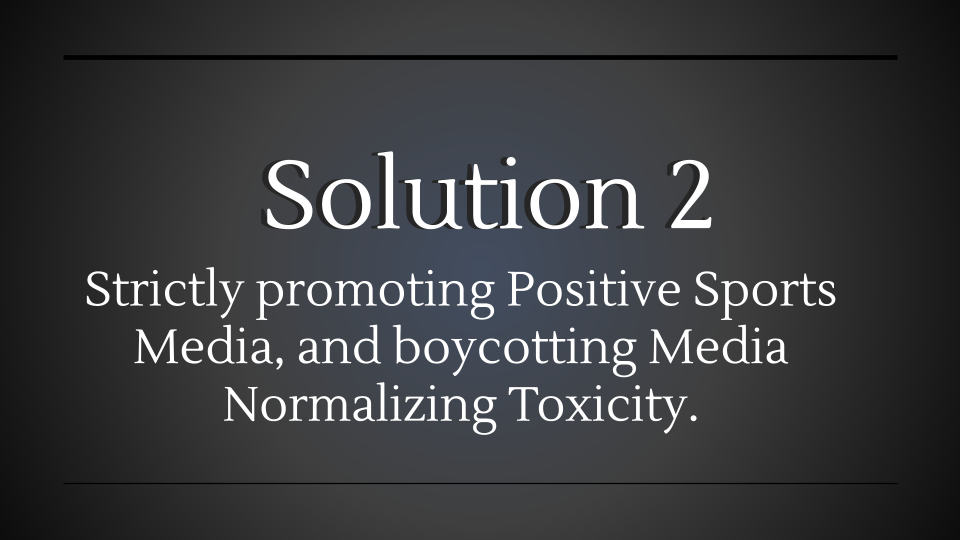
Negative” sports media = narratives that encourage..
discrimination
instigate tension
promote harming behaviors (eating disorders through toxic beauty standards or rioting in stadiums.)
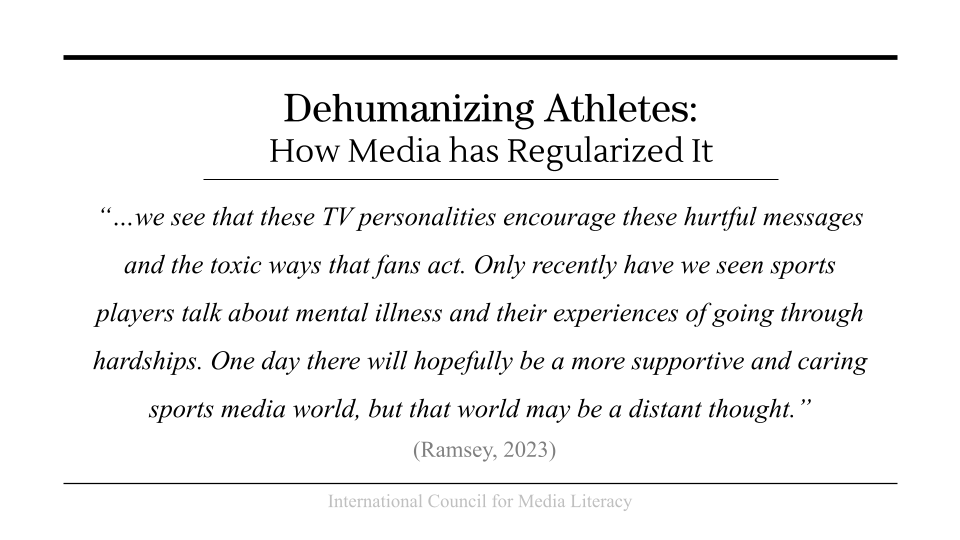
Quote shows the media has caused many problems among sports.
Dehumanizes athletes, making viewers think tearing them down is okay.
This is seen in my previous sources: when crowds intervene with sports games, or ppl criticize athletes for their race and identity.
Takeaway: Measures to detoxify the media are crucial, as it is the cause of the many problems with sports.
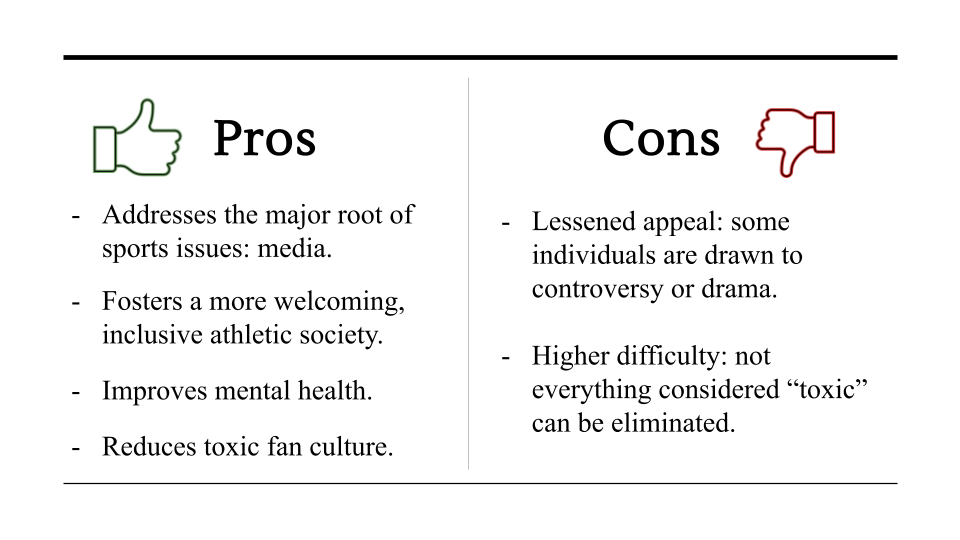
Directs me to my pros and cons:
Drawbacks: Some fans may engage less and it could be difficult to implement. There isn’t one way to purge all toxicity from the media.
However, through encouraging positive, representative media little by little, a huge difference can be made.
Opens doors for a more welcoming, inclusive athletic society.
People would be more motivated to speak up
As a result, restate whats in pros
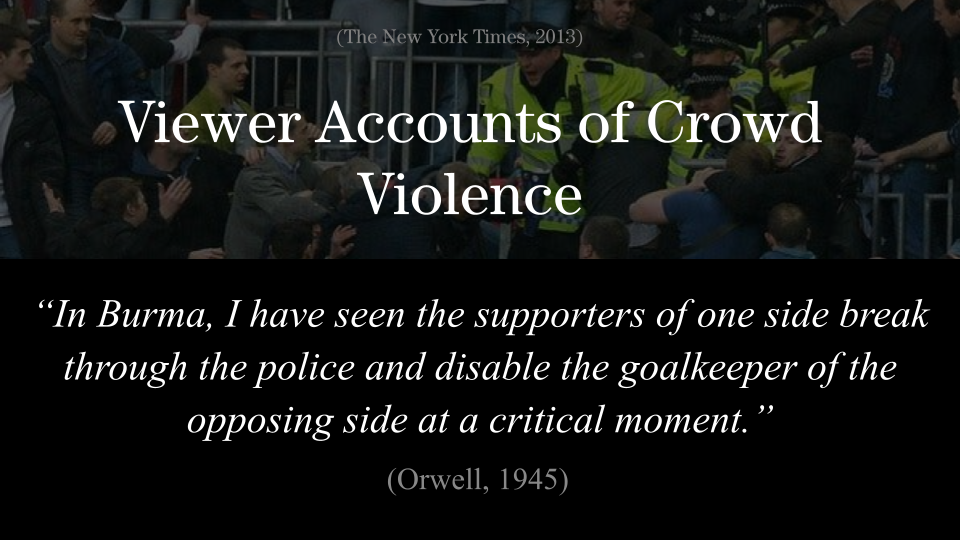
“Every man for himself”
Connects to independence
Perspectives of fans reveal ppl harming others to see other team on top.
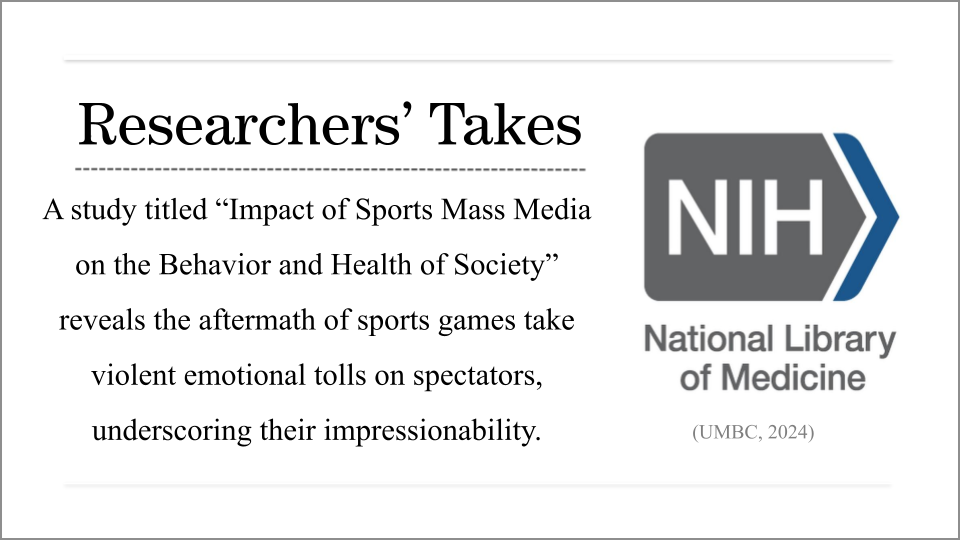
Parasocial fan-to-athlete relationships
Heightened emotional response = increased the chances of fans acting out + harming others.
Opposite of promoting unification.
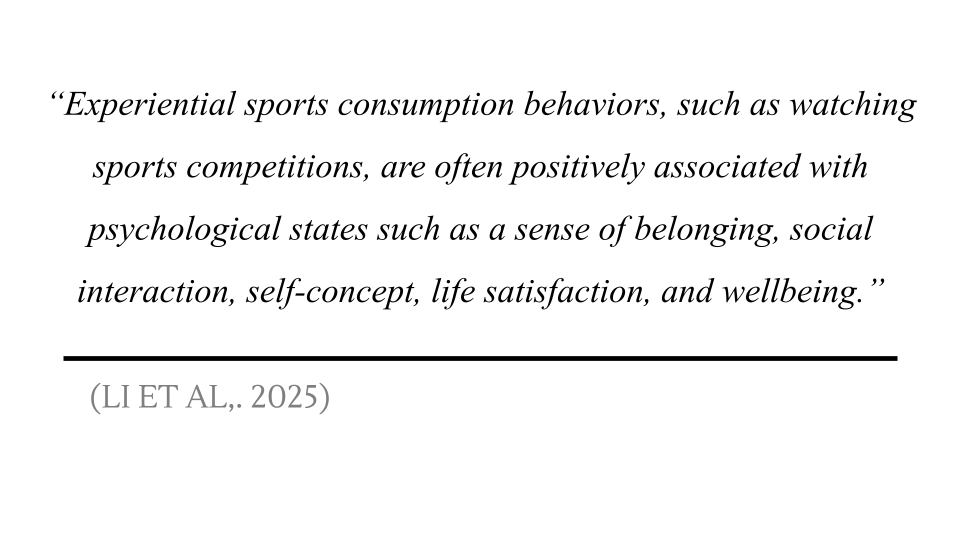
Argues
Playing increases cooperation.
Watching w/ community alleviates loneliness
BUT:
Observing tendencies of fan crowds causes harmful habits
Streaming services are replacing traditional sports viewing with loved ones.
As athletic society becomes toxic, action needs to be taken. This leads me to my solutions.
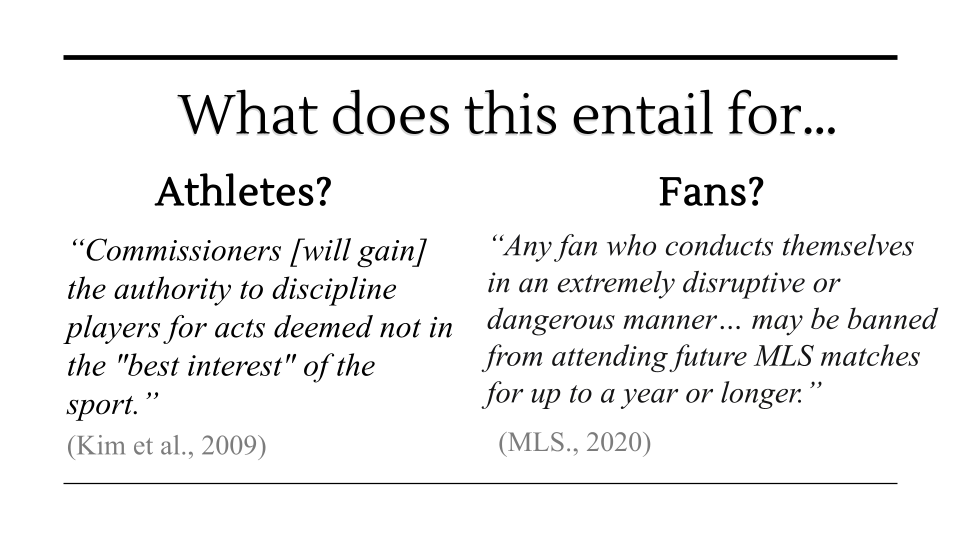
Code of conduct rules will be cracked down on. Athletes and fans who exhibit harmful behavior can recieve fines, suspensions, to even lifelong bans.
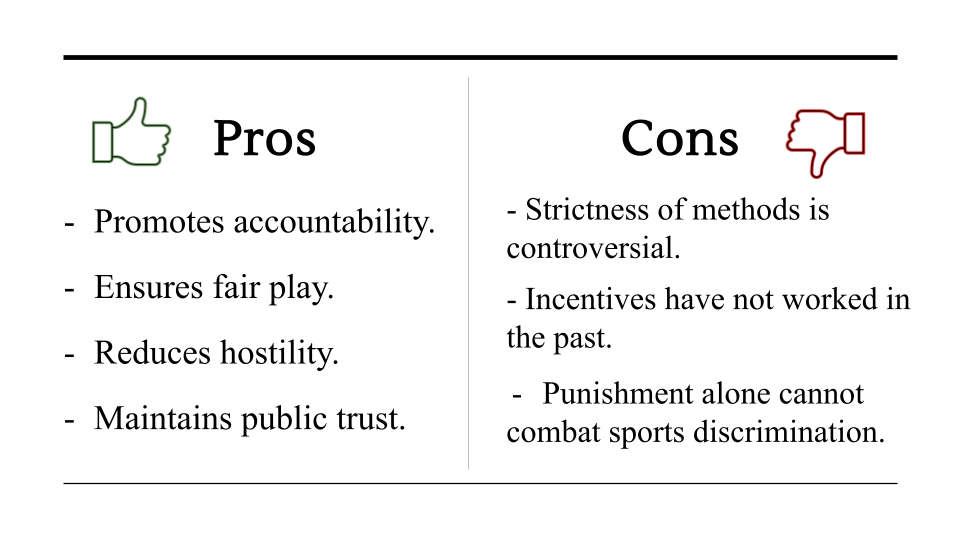
Useful in addressing competitiveness and hostility.
Prevents from physical outbreaks, but not the dealing of emotional harm.
Such as: through racism and toxic beauty standards.
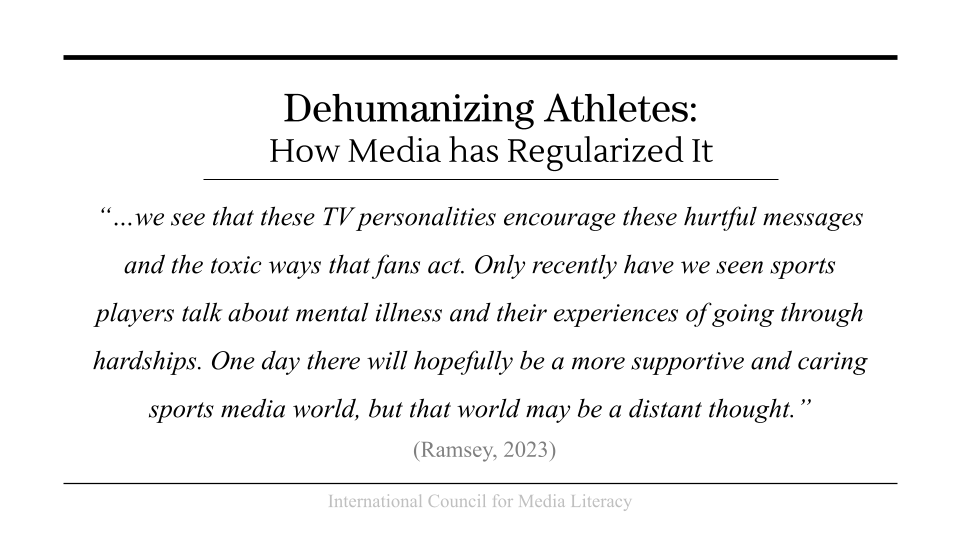
Media dehumanizes athletes
Makes fans think this behavior is ok.
Seen in preious sources, where fans think it’s okay to intervene with sports games.
Media detox is vital.